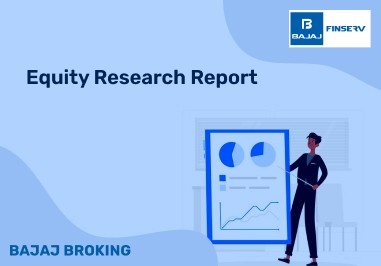Highlights
- Definition of Physical gold
- Definition of Gold ETF
- Definition of Sovereign Gold Bond
- Understanding advantages offered by SGB
- Concluding remarks
What is Physical gold?
Physical gold refers to gold in its actual, tangible form, whether it’s in the shape of gold biscuits, coins, or jewellery. This is the most recognized format of gold, which has been bought, sold, and owned for generations in India and around the world. As the traditional method of gold investment, it holds sentimental and cultural significance, especially in India.
This is the most comprehensible format. Physical gold means the gold in its actual form, whether in the shape of the gold biscuits, gold coins, or jewellery. The yellow metal is the most recognized format of gold and has been bought, sold and owned for generations in India and elsewhere.
Additional Read: How to Invest in Gold Exchange Traded Funds?
Benefits of Investing in Physical Gold
- Tangible Asset
Physical gold is a tangible asset that you can hold and use. - Cultural Value
Gold holds cultural significance, especially in Indian weddings and festivals. - Easily Liquidated
It can be easily sold in the market or to jewellers in times of financial need. - Acts as a Hedge Against Inflation
Gold tends to appreciate when the currency value falls, providing a hedge against inflation.
What is a Gold ETF?
Gold Exchange Traded Funds (ETFs) represent gold in paper or demat form. They offer the flexibility of stock investment while still providing exposure to gold. Traded on the National Stock Exchange (NSE), Gold ETFs enable investors to buy and sell units of gold without physically holding it.
Gold ETFs, or Gold Exchange Traded Funds, is an investment product that represents gold in a paper or demat form. While it allows the flexibility of stock investment, it provides the simplicity of gold investment. Gold ETFs trade on the cash market of NSE (National Stock Exchange) and can be traded at market price.
Benefits of Investing in Gold ETF
- No Storage Concerns
- Since Gold ETFs are in electronic form, they eliminate the risk and cost of storing physical gold.
- Highly Liquid
- Gold ETFs can be bought or sold anytime during market hours, offering liquidity similar to stocks.
- Lower Transaction Costs
- Transaction costs are usually lower than those associated with buying, storing, and selling physical gold.
- Price Transparency
- ETFs are traded at live market prices, ensuring transparency in pricing.
What is a Sovereign Gold Bond?
Sovereign Gold Bonds (SGBs) are government securities denominated in grams of gold, issued by the Reserve Bank of India (RBI) on behalf of the Government of India. These bonds are issued in multiple tranches throughout the financial year and offer an alternative to holding physical gold.
SGBs offer unique advantages such as no risk of forgery, semi-annual interest, and the security of being backed by the Government of India.
Sovereign Gold Bonds or SGBs are issued by the Reserve Bank of India (RBI) on behalf of the Indian government. These bonds are issued in several tranches during the financial year and act as an alternative for holding physical gold. SGBs are denominated in grams of gold.
While gold is a lucrative and less-risky investment, SGBs offer a unique set of advantages that makes it stand out from other formats. Here is what you need to know.
Additional Read: Why Should I Invest in Sovereign Gold Bonds (SBG)?
Why Invest in Gold?
Investing in gold offers several benefits, making it an attractive investment option:
- Long-Term Value
Gold’s value has steadily increased over time, making it a reliable long-term investment. - Safe Haven During Economic Uncertainty
Gold prices tend to rise during times of global crisis, making it a good hedge against uncertainty.\ - High Demand
Gold is always in demand, making it relatively easy to sell when needed.
Making an investment in gold is a great way to protect and, also, increase your money. Here is a quick summary of benefits:
- Gold’s value has increased over the years which makes it a great long-term investment product.
- Gold price increases when currency value falls which makes it a suitable asset during times of global crisis, like in COVID pandemic
- Gold is always in demand which makes selling it off easy
Additional Read: How to Invest in Gold Exchange Traded Funds?
Advantages of Sovereign Gold Bond (SGB)
- Government Assurance
SGBs are backed by the Government of India, ensuring no risk of fraud or purity concerns. - No Storage Issues
SGBs exist in demat form, eliminating the need for physical storage. - Earn Semi-Annual Interest
SGBs offer a fixed interest rate of 2.5% per annum, providing additional income on top of gold’s market appreciation. - Loan Collateral
SGBs can be used as collateral to secure loans from banks and financial institutions. - Tax Benefits
Capital gains from SGBs are tax-exempt, though the interest income is taxable under the Income Tax Act, 1961.
It comes with government’s assurance
One of the biggest advantages of SGBs is that it comes with an assurance that it is issued by the Reserve Bank of India on behalf of the government of India. This assurance eliminates all the worries about forgery, fraud and purity of the product that is associated with buying physical gold or Gold ETFs.
Ease of storage
Sovereign Gold Bonds exist in the records of Reserve Bank of India and in the dematerialised form, which eliminates the worrisome safekeeping and threat of theft that is always associated with physical gold.
You get semi-annual interest
SGBs beat a fixed-rate interest on the initial investment that you will make and it will be credited to your bank account on a semi-annual basis. It will mean an added income to you while your investment grows safely and securely at the market price, which is unlike the physical gold or Gold ETFs in which cases there is no additional income.
Get loan
You can secure a loan by putting your SGBs as collateral before the banks and other financial institutions. The Loan-to-Value ratio of the SGBs is same as applicable to gold loans prescribed by RBI from time to time.
Enjoy tax redemption
You will get to enjoy tax redemption on the capital gains made on your investment, however, interest on the bonds will be taxable as per the provisions of the Income Tax Act 1961.
Sovereign Gold Bonds Vs Physical Gold
Feature
| Sovereign Gold Bonds (SGBs)
| Physical Gold
|
Risk of Theft
| No risk, as it's in demat form
| High risk of theft
|
Storage Costs
| No storage cost
| Requires secure storage
|
Interest Income
| 2.5% semi-annual interest
| No interest
|
Government Backing
| Backed by Government of India
| No such backing
|
Purity Concerns
| Guaranteed purity
| Risk of impure gold
|
Gold ETF vs SGB (Sovereign Gold Bonds)
Feature
| Gold ETF
| Sovereign Gold Bonds (SGBs)
|
Storage Costs
| No storage costs
| No storage costs
|
Interest Income
| No interest income
| 2.5% semi-annual interest
|
Market Liquidity
| High liquidity
| Moderate liquidity
|
Capital Gains Tax
| Taxable
| Tax-free on maturity
|
Government Backing
| No backing
| Government-backed
|
Conclusion
Gold has long been one of the most trusted investment options for long-term value appreciation. While physical gold comes with challenges such as safekeeping and purity concerns, Sovereign Gold Bonds eliminate these issues, offering a government-backed, secure investment option with added interest income. Gold ETFs, on the other hand, provide flexibility and liquidity. For a well-rounded portfolio, SGBs and Gold ETFs can be considered superior alternatives to physical gold.
Gold has emerged as one of the most significant long-term investment products as its market price has increased dramatically in recent years. Investing in gold, however, comes with its own shortcomings, like the extracare that is needed for its safekeeping and the risk of exposure to frauds. SGBs or Sovereign Gold Bonds cut the risk of safekeeping, come with a government assurance and a regular interest payback, making it a perfect investment product.
Disclaimer: Investments in the securities market are subject to market risk, read all related documents carefully before investing.
This content is for educational purposes only. Securities quoted are exemplary and not recommendatory.
For All Disclaimers Click Here: https://bit.ly/3Tcsfuc
Disclaimer: Investments in the securities market are subject to market risk, read all related documents carefully before investing.
This content is for educational purposes only. Securities quoted are exemplary and not recommendatory.
For All Disclaimers Click Here: https://bit.ly/3Tcsfuc













